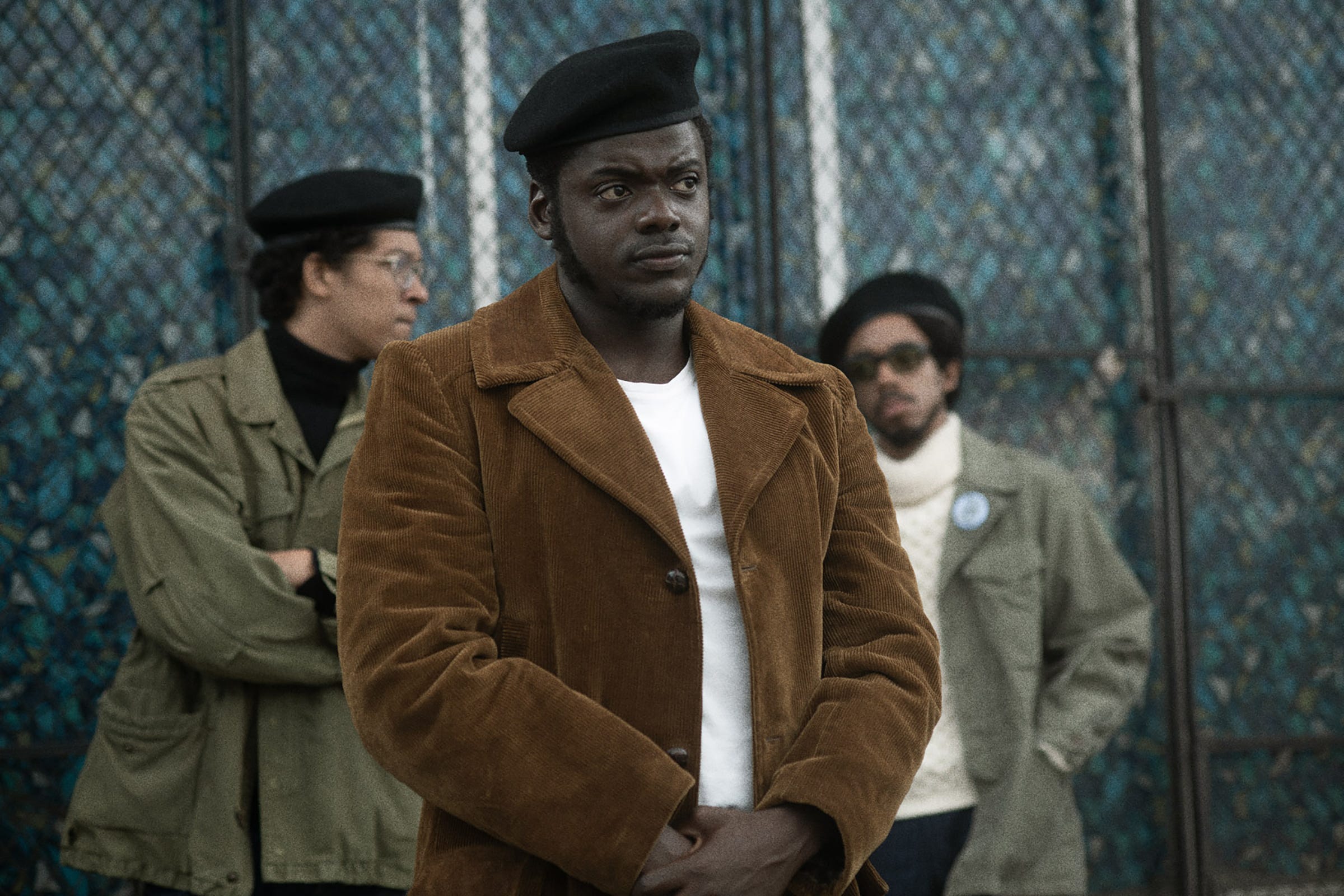Martin Luther King. Malcolm X. Rosa Parks. James Baldwin. John Lewis. Muhammad Ali. Jim Brown. Bill Russell. Sam Cooke. These are some of the famous names people know from the Civil Rights Era in US History. Regina King put 5 of them in a movie together earlier this year! Fred Hampton should be mentioned alongside those famous people; for years I’ve been hoping he would get his own overdue cinematic story to help boost his name in the populous. Shaka King must have also thought so; she takes all that pent up lack of recognition and channels it into Judas and the Black Messiah, turning the movie into a force that makes you pay attention.
As you might expect, Hampton (Daniel Kaluuya) is the Black Messiah here, a natural leader and orator that rose quickly through the ranks to become the leader of the Black Panthers in Chicago in 1969, finding purpose and also the love of his life, Deborah (Dominique Fishback). Judas in this case is William O’Neal (Lakeith Stanfield). O’Neal was arrested on charges of impersonating a police officer. He agrees to accept a lesser sentence if he joins the Black Panthers in Chicago and reports to his handler Roy Mitchell (Jesse Plemons) on what Hampton is up to. As you might expect, as O’Neal learns more and more about what Fred Hampton’s aims and goals are, the lines for what is right/wrong get blurred pretty quickly.
It was probably hard to make a Fred Hampton story because how could you find an actor with the range to pull off the complexities of the amazing man. This story is doubly hard then, because you also have to find similar complexity in William O’Neal, a man of many faces. Well, thankfully, Daniel Kaluuya and Lakeith Stanfield were available. Kaluuya continues to prove to be one of the best talents of his acting generation. He nails all the parts of Fred Hampton as the scene requires him to. His oration skills are impressive and damn inspiring: he nails the “I Am…..a REVOLUTIONARY” speech and demands to be heard when he talks in public, but he’s equally impressive conveying how he’s feeling wordlessly or on the DL. Stanfield is also sensational here, painting O’Neal like an emotional chameleon we can’t really pin down other than the fact that he’s just trying to survive. Shaka King makes sure the stage is bright and large when Stanfield or Kaluuya are onscreen, giving them the platform they deserve, while the sinister actions surrounding them happen in the dark of night.
For those of you who don’t know, Fred Hampton was murdered by a nighttime raid on his apartment by the FBI and police. J. Edgar Hoover (Martin Sheen) forever tarnished his legacy by openly targeting black activists as the biggest threats to the United States, cutting many sensational lives tragically short. Judas and the Black Messiah goes into great detail how pervasive and sinister the FBI’s tactics were in eliminating these “threats” to “society,” with most of the violence in the news, or covertly under darkness. People like Fred Hampton should be revered for their attempts to fight all the power and resources of such a powerful enemy, for the simple request of equal rights under the constitution of the United States. Hampton shows foresight beyond his years with some of his speeches, rightly identifying how to win in a democracy: by fighting capitalism with socialism and uniting various working groups who are oppressed against the powers keeping them in their place. Shaka King’s biggest contribution though is tragic: no matter how skillfully or magnetically you try to fight for what you want, society is always going to push back, more and more dangerously so, if it feels threatened with changes to the status quo. It’s a bleak ending, but an important one for perspective, so people understand just how hard that fight is going to be bend that moral arc of the universe toward justice.
One minor regret I have for Judas and the Black Messiah is not acknowledging Fred Hampton’s age. All that stuff Fred did: leading the Panthers or forming a Rainbow Coalition and cease firing violence? Fred did all of this by age 21! John Boyega would have been an interesting choice, or even letting Kelvin Harrison Jr. do more than his Trial of the Chicago 7 version; those two actors look younger, which would have made the 99% amazing Hampton tale 11% more amazing. It also would have equaled the 110% of dedication Hampton gave for a life of civil service and civil rights.

